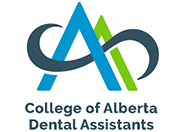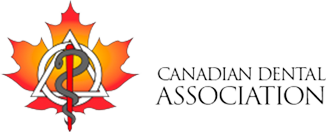Your Child’s First Visit
We recommend scheduling your child’s first dental visit when they are either approx. 3 years of age, or earlier if there is a concern or dental problem. We know that each child is different, and some may be ready for their first visit sooner than others. If you don’t have any concerns and feel they aren’t quite ready, delaying until they are a little older (even 6 months) can make a big difference with readiness.
Schedule your child’s first dentist appointment when they will be the least fussy.
Make sure they are well-rested and fed before you arrive. While making the appointment, you can also ask about completing health history forms in advance and if the office will need any additional information to help limit the time waiting in the office. A quick call to our reception team can also confirm your child’s coverage in advance.
Keeping a positive attitude and talking excitedly about the dental visit will go a long way in making your child feel comfortable instead of scared.
We spend the majority of their first appointment familiarizing them with all of the “cool tools and equipment” we have and use in a fun interactive way. If your child is enjoying this and having fun, we try looking in their mouth, counting teeth, and polishing them. If your child is nervous or hesitant, we may decide to wait and try again when they are older. The doctor will come in at the end for a quick oral exam. We finish off with rewarding good behaviour with a prize. We also will (with parent’s consent) take your child’s picture for our “Cavity Free Club” if they are cavity free. We want to make your child’s first visit a fun one to remember so they look forward to coming.
Your Child’s Dental Treatment Appointment
First and foremost, we highly recommend that you DO NOT use the word “NEEDLE” or “SHOT” when describing how dental work will be performed on your child. We like to use the phrase “SLEEPY JUICE,” which is less scary for a young child. This is especially true if your child has just received vaccinations while at their pediatrician’s office (as you can imagine, that was probably not a fun experience for them). Most children respond poorly during dental injections because of increased fear or anxiety brought about by the anticipation of receiving an injection. In most cases, the doctor can very gently administer the freezing with minimal to no pain, and without the child knowing that a needle was even used.
The topical anesthetic that is placed prior to the injection works extremely well at numbing the tissues and also helps your child not to feel a poke or pinch sensation. We understand that you want to be truthful with your child, but there are better ways to explain the process to help them stay calm. We always talk children through what we are doing in simple and non-scary ways, so there really is no need for you to go into depth prior to their treatment. Many times, it just tends to overwhelm them or stress them out. In most cases, less information given to them prior to their appointment makes things go smoother for everyone involved.
Here are some helpful tips when bringing your child in for their first visit or for treatment
Feed them First
Lots of parents avoid feeding their child before a dentist appointment, but nothing makes a child grouchier than having to sit still on an empty stomach. If you want to help your child stay calm and even-tempered during their visit, make sure they’ve eaten first. Obviously, we recommend something healthy and filling (and be sure they brush their teeth afterward!).
Time Of Day is Key
Try to schedule your child’s appointment when they are well rested. Tired children usually equal cranky children. Avoid appointments during what would be your child’s nap time (if they take naps), or at the end of day if they are usually tired after school.
To Be With Them, Or Not To Be
Some children do better when their parents aren’t in the room during treatment. They tend to sit still, listen better, and be braver. Kids can feel if their parent is anxious and it can cause them to become anxious or nervous. If YOU are anxious, maybe consider excusing yourself to the waiting room once your child is seated and comfortable at the start of their visit. If you do want to stay in the room with them, its best to remain relaxed and quiet as we work with your child to make their visit a positive experience.
Avoid Negative Language
Mentioning pain or discomfort ahead of the appointment reinforces the idea that dental visits are something to dread. Instead, make sure to talk about your child’s upcoming appointment in ways that make it seem like a normal, everyday task. Words like ‘needle’ ‘shot’ or ‘drill’ can be a bit alarming, and should be avoided.
Avoid Talking About Your Own Negative Experiences
Don’t try to relate to your child’s worries or fears by describing your own scary, uncomfortable, or painful dental experiences. This will only make their worries or fears worse. We have a great team of Doctors and Staff what will do everything we can to make sure your child doesn’t have a negative experience.
Avoid Being Specific
Avoid Bribes BEFOREHAND
Offering your child a treat or toy in exchange for their promise to behave during a dental appointment suggests that behaving will be a challenge. If you say, ‘if you’re good and don’t cry, you’ll get a special treat afterwards,’ your child may start to wonder about why he might feel inclined to cry or misbehave during the appointment. Instead, it’s best to make the experience seem ordinary so that your child doesn’t have any reason to worry. Talk about your own visits to the dentist in a positive way.
Offer Rewards AFTER Visits
Even if your child gets scared or frustrated during their visit, it’s best to focus on the things they did well. Then take them out after the appointment and make a point of rewarding them for their good behaviour, instead of drawing attention to their problems. Giving your child a healthy snack and some words of encouragement after each appointment is an excellent way to help them form positive associations with dental visits.






More information
(780) 489-0160
admin@donisondental.ca
14729-87 Ave. NW Edmonton, AB Canada T5R 4E5
BUSINESS HOURS
Monday
Tuesday
Wednesday
Thursday
Friday
Saturday
Sunday
© 2022 Donison Dental. All Rights Reserved.
Website designed by Web Design Edmonton